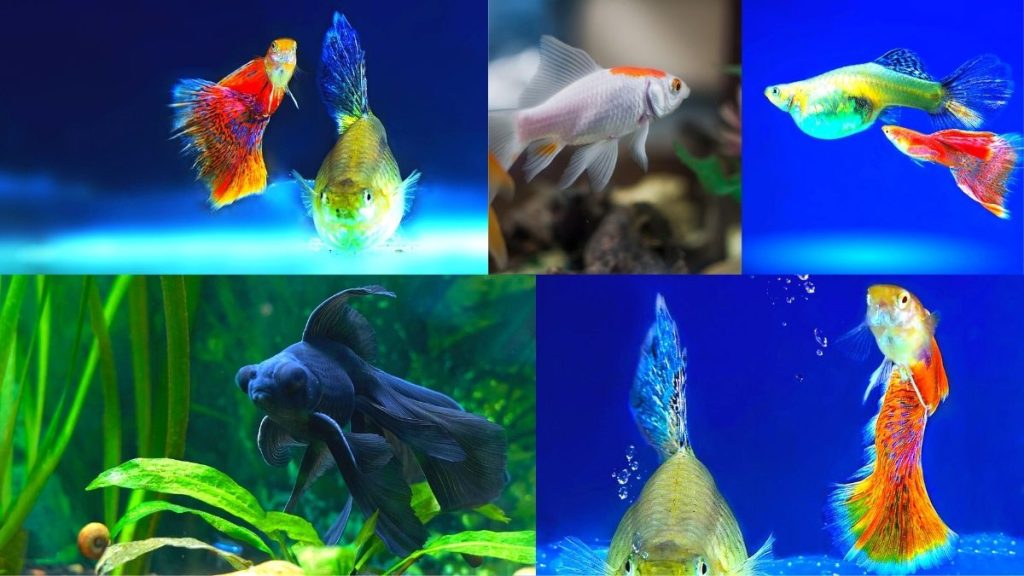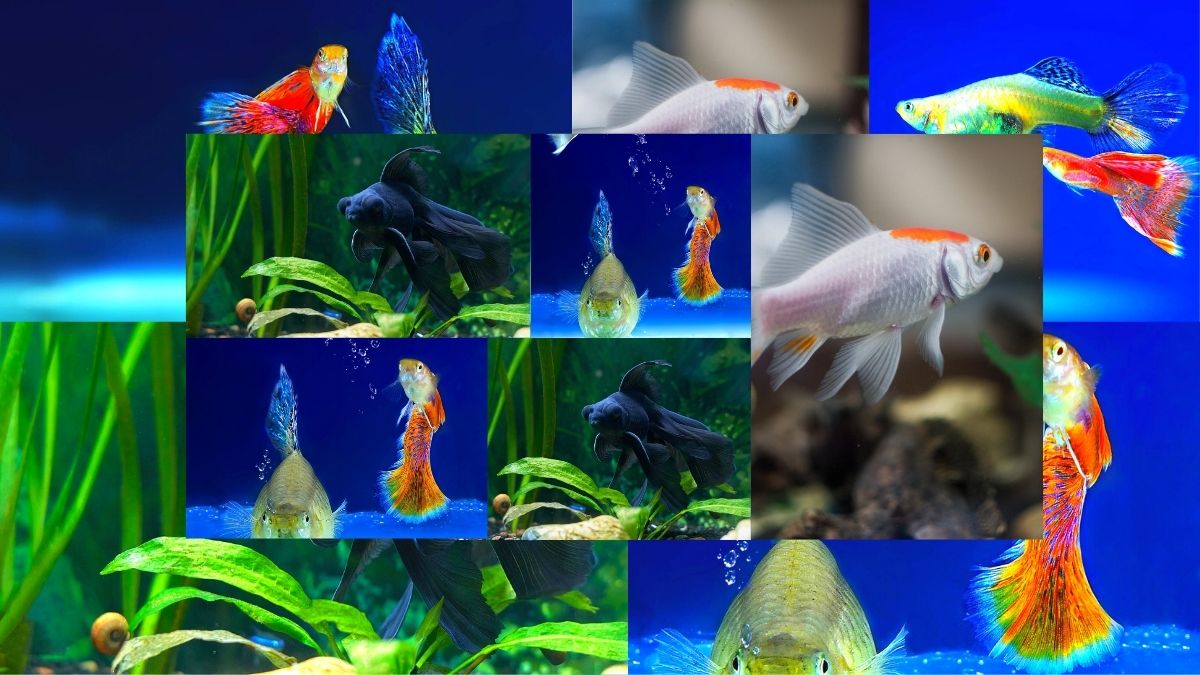Among several strange question posed by aquarists seems to be, can aquarium fish see in the dark. As such, the short and simple response would be no! However, there seems to be a catch. Aquarium fish, whether betta, goldfish, guppies, or any others, cannot see in the dark with their own eyes. Rather than, they have sections of pressure-sensitive organs called neuromasts that run down thus every side of their body and allow them to detect nearby animals based on tension effect on the water column. This capacity tries to explain how fish can “see” or identify both these animals underwater, in which light penetration has been small, then at night throughout the dark.
Just several tropical aquarium fish, which including elephant nose, have such a small electrical organ on their own caudal fin that they were using to discover food, similar to how sharks as well as electric eels are doing in the animal world. Continue reading to learn so much about how fish see and whether this impacts how we soft fresh – water aquariums.
Can Fish See Humans?
Let’s talk about can fish see humans? All fish have had some amount of night vision, while some life forms, such as walleyes, are seeing in the dark far nicer than some others. Scientists agree that almost all fish have poor special awareness as well as a semi-blind place directly ahead of them. To recompense for this, their retinas are mildly enlarged.
Can Fish Eat in the Dark?
Let’s talk about can fish eat in the dark? In my knowledge, the fish don’t really discover the nourishment as much in the dark, resulting in far more waste in the tank. I wouldn’t be doing it unless you have night time fish, such as Cory’s or Pleco’s, that also are presumed to be fed sometime before dark.
Is It Necessary to Provide Darkness for Aquarium Fish?
Once we’ve established the question, can aquarium fish see in the dark? Aquarium fish do not really see in the dark and then use neuromasts to catch movement, the very next relevant question seems to be whether aquarium fish require darkness, and if it is, must you leave your aquarium lighting system on 24/7 therefore the fish can eat and enjoy also at night? Often these fish, like humans, involve both periods of darkness and light since they need to relax as well as refuel after just a long day of swimming, getting food as well as mates. As just a result, it really is suggested that you consider leaving your aquarium lights on over an absolute max of 12 hours before turning them off for the remainder of the day to imitate a regular day’s darkness and light process.
Throughout this time of darkness, your fish would most probably demand out a peaceful place among the ornaments to sleep. Nevertheless, it is indeed important to understand that, while fish require cycles of darkness to sleep, their sleeping habits are really nothing such as those of humans. Aquarium fish could indeed sleep at any time, not just at night. As just a result, the other cause fish require the aforementioned time frame of darkness would be to replicate the diurnal-cycle, whereby all living creatures, along with living creatures, are adapted. Furthermore, fish such as bristlenose pleco and also some inverts such as snail are much more active at night, so reap the benefits of the period of darkness once you turn off your aquarium lighting system to feed.
Do Fish in Aquariums Sleep?
Even though I previously stated, aquarium fish undergo a period of darkness to simulate a regular day cycle and also to allow them to rest. As such, does any of this imply such a tropical fish sleep? It really does, in fact! If you observe your fish for an extended period of time, you will realize that they really do take breaks. The fish hover throughout one location during these periods of sleep, just about as if they are in a trance. Even though, do not even predict in seeing your fish sleeping including its eyes shut even though fish lack eyelids and sleep whereas their eyes wide open.
Furthermore, you would never discover all of your fish sleeping at about the same time, such as when you turn off the aquarium lighting system. It’s because, for the fish, sleep could be any time frame even before they take a rest from swimming to store energy, and that it can occur at any time of day. That being said, it is indeed simple to see your fish sleeping and therefore not recognize it because they’re still moving. The cause for this consistent, albeit slow, physical movement would be for the fish to ensure a steady stream of fluid past their gills in order to maintain good oxygen content in their bodies.
Eventually, whilst also fish don’t really sleep underneath a shelter such as humans, prey, shy, as well as skittish species of fish might very well tend to hide under a cover inside the tank whilst also reclining to avoid being seen by a predator.
Is it Fine to put the Lights on in a Fish Tank at Night or All the time?
Because aquarium fish, as with all animals on the planet, nocturnal or otherwise, adjust to a time frame of light followed by long of darkness, it’s not really suggested to leave aquarium lights on at night, let alone 24/7. Even though most tropical fish developed in environments with approximately 12 hours of light each day, logic would suggest that even an aquarium with fish will also most obviously involve a mixture of ambient as well as aquarium lighting for around half of the day. Nonetheless, cold-water life forms including such goldfish, minnows, ricefish, as well as zebra danios come from temperate climatic regions in which daylight hours differ depending on the season.

For all these fish, you may also need to differ the quantity of light in your tank throughout the year, ranging from 8 to 12 hours per day; 10 light hours is indeed a sensible median. It is indeed best to keep cichlids from South America, tetras, angelfish, discus, as well as other tropical fish from the Amazon basin with fewer hours of light since the fish have been accustomed to dark water quality with in animal world. Generally speaking, attempt to align the length of aquarium light hours as accurately as possible to whatever the species you’re continuing to keep perspectives in the outdoors. However, aquarium lighting is indeed a design element as well as a functional requirement.
The lighting system of a lighted tank adds a dramatic aspect in a room that you may want to continue pushing longer, especially if you host evening parties at your home. In these kind of cases, think about buying a collection of LED moonlight aquarium led lights, which seem to be vibrant enough just to illustrate your tank for aesthetic appeal but have a dark blue light mode which does not interrupt your fish’s sleeping patterns when compared to conventional white light. Eventually, one of the most significant barriers to having a constant period of aquarium lighting would be that aquarists find it incredibly difficult to switch the lights on and off at the very same time each and every day. Luckily, there is a low-cost way to solve this issue. Consider buying an on-off time limit as well as connect it to the lighting, after which program the on then off periods to achieve the desired amount of light each and every day.

